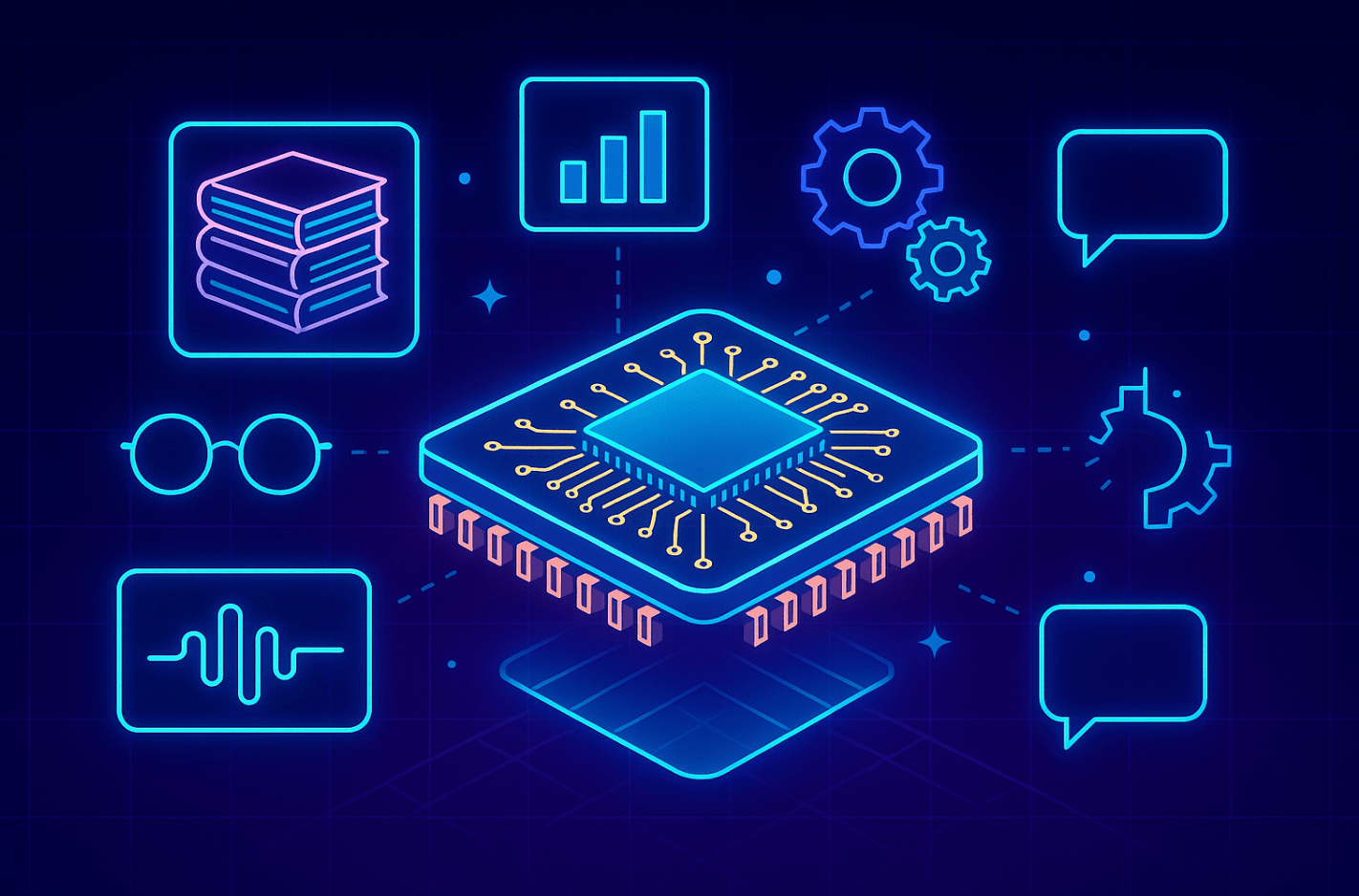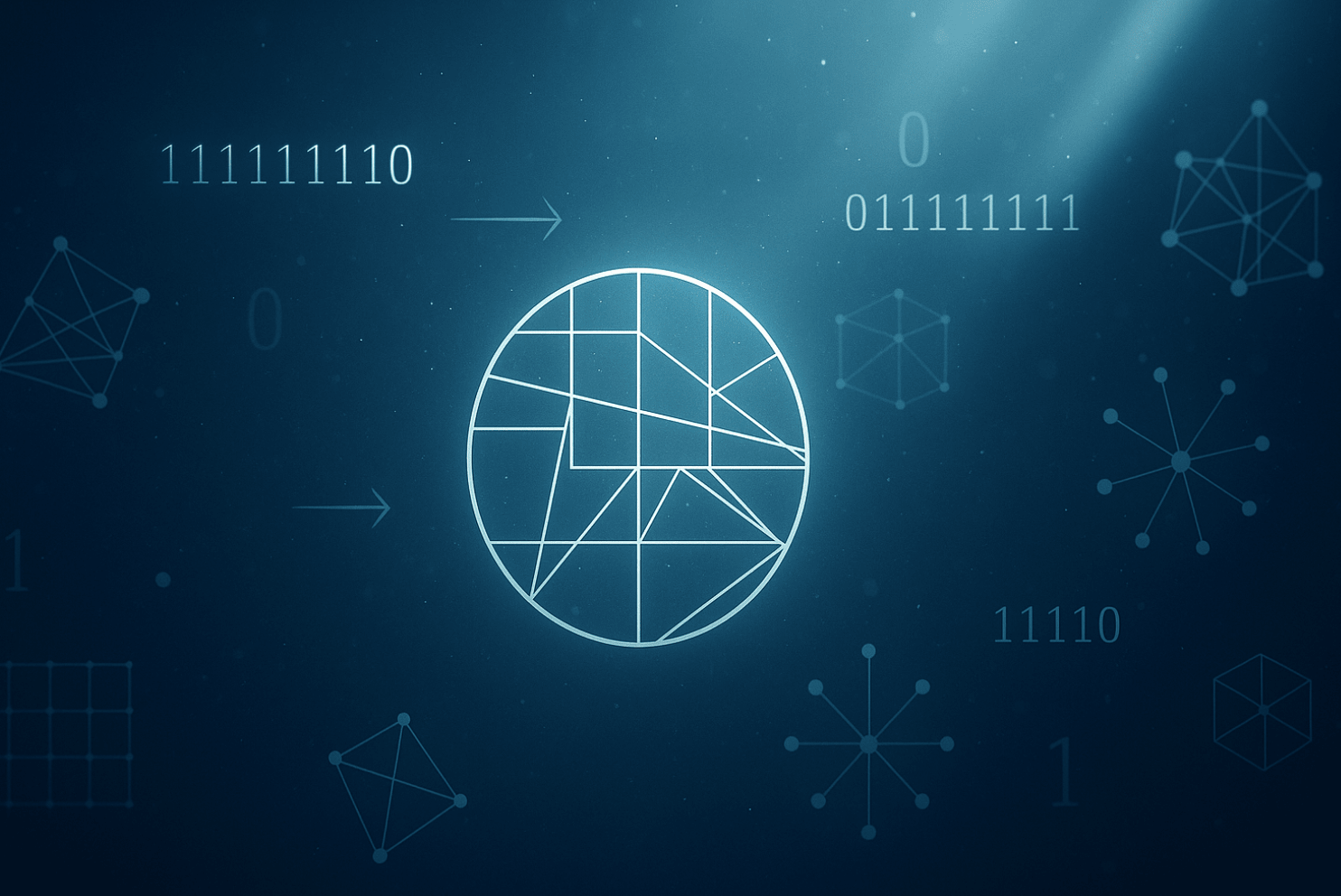October 2, 2024
The Power of Conversational AI and the Future of Innovation
AI-driven conversations are transforming innovation and idea generation.

Remember the last time a brilliant idea struck your mind - perhaps it was a new business proposal that excited you or a creative solution to a persistent problem? How did you get this idea? Did it result from an individual Eureka moment, or did it emerge from conversations with friends, colleagues, and other acquaintances? More often than not, it is these interactions - casual discussions over coffee, collaborative meetings, or even a chance encounter on the street - that spark new ideas and help us refine and iterate on these ideas. What if these conversations were not limited to just humans? What if we could augment these conversations with AI, accelerate the creation and refinement of new ideas, and push innovation to new heights?
From the invention of the wheel to the rise of modern AI solutions, conversations have always been at the heart of innovation. As we enter a new era of AI development, driven by the advent of large language models, the nature of these conversations is evolving in unprecedented ways. Thus, we have to ask ourselves - how will this transformation impact the way we innovate? In this article, we will explore and speculate about the exciting possibilities and challenges that await us as we integrate conversational AI into the world of innovation.
Conversations - the Catalyst for Human Innovation
Conversations have been the drivers of human progress throughout history. From early humans gathering around fires and exchanging knowledge to the sophisticated debates in academic institutions today, conversations have played a crucial role in shaping our world and society. They serve as more than just a means of communication; they are essential for generating ideas, fostering collaboration, and driving innovation. Several factors make conversations so powerful in driving human innovation:
- Exchange of ideas: Conversations create a dynamic feedback loop that challenges and expands on each participant’s perspectives. This iterative process is essential for nurturing creativity and driving innovation - refining thoughts, pushing boundaries, and often leading to unexpected insights.
- Collaborative problem-solving: Conversations bring together diverse viewpoints and expertise that allow us to approach complex problems from different angles. This synergy often leads to breakthroughs that would be impossible through individual effort alone, demonstrating the power of collective intelligence in driving innovation.
- Abstract thinking: Abstract thinking helps us take a step back from specific details and focus on the bigger picture. In conversations, this type of thinking allows us to generalize ideas and apply them to different problems. By discussing and sharing perspectives, we can spot patterns and principles that work across various situations, leading to creative solutions and innovative breakthroughs.
- Knowledge transfer: Conversations are a crucial vehicle for sharing ideas, skills, and discoveries across generations and communities. They allow us to exchange information in a way that invites immediate clarification and deeper understanding. This interactive process helps us build knowledge over time and lay the foundation for greater innovation and progress.
The Evolution of Innovation with Human-to-AI Conversations
The integration of AI into our creative and problem-solving processes is about to transform the way we innovate and progress. Imagine brainstorming sessions where an AI assistant instantly generates dozens of potential solutions. Now, imagine this assistant not only offering ideas but also having access to a vast reservoir of knowledge and dissecting complex problems from perspectives you might never have considered alone. This is no longer a futuristic dream but reality with tools like ChatGPT and other Conversational AI technologies.
Conversational AI has redefined the very nature of ideation. Rather than endless searches and skimming for information, a simple prompt to an AI like ChatGPT, Claude, or Gemini can provide a concise, insightful overview, ready to be expanded with further questions and iterations. However, it is essential to remain cautious due to the potential for hallucinations—large language models are known to occasionally produce seemingly plausible false information. Fortunately, AI assistants with integrated internet access, like Bing, offer links to web content that allow us to verify the provided information and assess the trustworthiness of the source.
Conversational AI has the potential to democratize innovation by making high-level conversations about complex topics accessible to everyone. Imagine having a breakthrough idea for a sustainable energy solution but lacking the connections or expertise to develop it further. With AI assistants, you can tap into vast reservoirs of knowledge about renewable technologies, market trends, and potential challenges, all within seconds. This capability lowers barriers for innovators from diverse backgrounds, enabling more people to contribute to the ideation process. By connecting different concepts and disciplines, AI accelerates the cross-pollination of ideas and enhances our collective problem-solving capabilities.
The cross-pollination of ideas is significantly enhanced by Conversational AI, not only by providing access to vast amounts of knowledge but also by efficiently screening this information to identify patterns and underlying principles that are applicable across different domains. This ability to draw connections between disparate fields fosters a deeper level of abstract thinking, where AI can help us generalize concepts and apply them to novel problems. Moreover, the speed at which AI facilitates this process is unprecedented. With continuous feedback and basically having a brainstorming partner accessible 24/7, we can quickly iterate on ideas and explore new directions as inspiration strikes.
In addition to enhancing our ability to think abstractly and connect ideas across disciplines, Conversational AI also plays a crucial role in making the innovation process more inclusive and globally connected. Its multilingual capabilities break down language barriers and facilitate collaboration across borders. This diversity enriches the ideation process, as perspectives from various linguistic and cultural backgrounds intersect. However, AI can provide cultural context but it is important to keep in mind that it might not accurately pick up and understand cultural nuances. Therefore, human insight remains essential in interpreting AI-driven ideas to ensure they resonate across different cultural contexts.
Conversational AI has tremendous potential to enhance and accelerate innovation, but it comes with its own set of challenges. One significant concern is the risk of over-reliance on AI, which could diminish our capacity for creativity and critical thinking. If we depend too heavily on AI-generated insights, we may become passive consumers of information and lose the drive to explore and innovate on our own. Another significant challenge is the potential for misinformation. The challenge lies in how diligently humans will verify the accuracy of AI-generated information.
AI-to-AI Conversations and Emergent Complexity
The speed at which human-to-AI conversations are accelerating innovation is remarkable, but AI-to-AI conversations have the potential to take this even a step further. No longer constrained by the limitations of human communication or current human-to-AI interactions, the advent of multi-agent systems opens the door for an unprecedented pace of rapid idea generation and refinement. Picture a world where AI agents, each with its unique expertise, engage in a constant, high-speed dialogue, combining, testing, and iterating on concepts at a scale previously unimaginable.
The diverse expertise of AI agents provides a fertile ground for the emergence of new ideas. Imagine an agent deeply versed in materials science engaging in a conversation with one specializing in artificial intelligence; their combined knowledge could lead to the development of groundbreaking new materials with intelligent properties. Or consider a historian AI sharing insights with a futurist AI - such conversations could yield unique perspectives on societal trends and potential future innovations.
Personality plays a crucial role in human innovation, and the same holds true for AI agents. Creative Dreamer AIs propose wild, out-of-the-box ideas, while Pragmatic Thinker AIs ground those ideas in reality. The interaction between these diverse personalities will likely drive the innovation process forward by pushing boundaries while maintaining a sense of feasibility. In addition, adding an AI agent designed to challenge assumptions could help identify potential flaws and contribute to the development of more refined concepts.
The ability of AI agents to operate at varying levels of abstraction amplifies our exploration of new ideas. An AI agent designed to act as a visionary can process vast amounts of data to generate innovative ideas by abstracting principles from various fields. Meanwhile, detail-oriented AI agents can take these visionary ideas and break them down into actionable steps. This synergy between AI-driven abstract thinking and practical execution could potentially accelerate the innovation process, making ambitious concepts both attainable and impactful.
We could take this setup even further by enabling rapid prototyping. Imagine developing a new productivity app designed to help users organize their daily tasks more efficiently. A Design AI could create user interface mockups, conceptualizing the layout and navigation of the app. Meanwhile, an Engineering AI could generate a basic, functional prototype of the app. Evaluation AI agents could simulate users and test the app. At the same time, a Risk Assessment AI could proactively identify potential challenges or ethical concerns.
Multi-agent systems have the potential to rapidly generate a massive number of ideas. This volume is likely going to pose a major challenge in the future. Human oversight will remain essential to ensure the quality and ethical soundness. Evaluator AIs could help filter and prioritize ideas, but they themselves require human supervision to maintain accuracy and ethical standards. The pace at which companies can innovate is likely going to depend on how effectively they manage human monitoring of multi-agent systems.
A significant challenge in managing AI systems is keeping multi-agent interactions focused on their intended goals. As these agents collaborate, the risk of diverging into unproductive or unintended behaviors increases. The key is to balance their freedom to explore and innovate with the need to stay aligned with specific objectives. This underscores the importance of developing techniques that guide and constrain multi-agent systems, ensuring they remain productive while still allowing for the emergence of novel and potentially groundbreaking solutions.
Explore our content
Get to know and learn more about Cloudwalk below.






![[Paper-club sessions] LIMO: Less is More for Reasoning](https://cdn.prod.website-files.com/6654b3697a9d140e0ca14e14/68c29fab9171604aaae334a4_ChatGPT%20Image%2011%20de%20set.%20de%202025.png)


